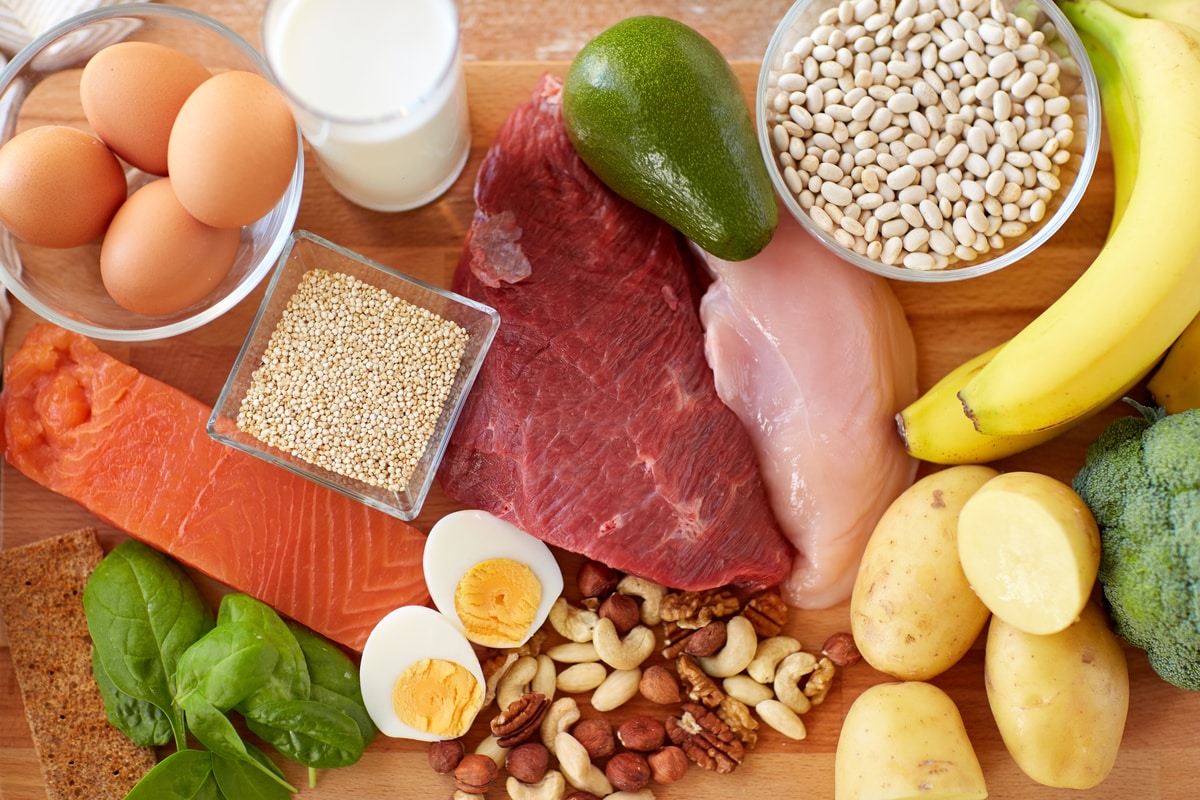Fact: There is not a natural “cure” for cancer. (Spoiler alert: There is not a conventional “cure” for cancer, either.) There are treatments – natural and conventional – and you may become cancer-free, but there are no 100% guarantees.
However, there are natural-based approaches everyone should incorporate into their lifestyle to help prevent disease.
You are what you eat
Diet is the most essential building block for any natural cancer treatment. What you eat affects your immune system, which your No. 1 defense against cancer.
Currently, there is much debate surrounding keto vs. plant-based diets. Each side has its proponents (and each side has its detractors).
A ketogenic diet consists of low-carb, high-fat foods. The reduction of carbohydrates puts your body into a metabolic state called ketosis.
In short, the liver converts fat into ketones (small fuel molecules in the body). The ketones enter the bloodstream and are used as fuel – just like glucose – in cells. Replacing sugar (glucose) with ketones is the theory behind a ketogenic diet. And since cancer cells need glucose, it is believed a ketogenic diet may help cancer patients. (1)
Ketogenic diets also may have benefits against diseases such as Alzheimer’s, diabetes, and epilepsy.
A plant-based diet has cancer-centric pluses. A PBD also may reduce the risk of diabetes, heart disease, as well as aid in slowing cognitive decline.
Research regarding a plant-based diet and cancer include:
- A significantly lower risk of gastrointestinal cancer. (2)
- A 22% lower risk of colorectal cancer than non-vegetarians. (3)
Which diet you choose should be the end result of a conversation between you, the oncologist, and a dietician. (Note: There is a difference between a dietician and a nutritionist.) Also, it is critical to discuss supplements with your healthcare team.
According to research published in the Journal of Clinical Oncology, fewer than 50% of oncologists discuss herbs or supplements with their patients. Many doctors noted their own lack of knowledge regarding “natural” adjunct therapies as why they skip that conversation. (4)
“Lack of knowledge about herbs and supplements and awareness of that lack of knowledge is probably one of the reasons why oncologists don’t initiate the discussion,” said Dr. Richard Lee, medical director of Integrative Medicine at MD Anderson Cancer Center.
Immune System 101
The immune system, which consists of specialized cells, tissues, and organs, is designed to defend against germs and microorganisms. The immune system is made up mainly of lymph nodes; these flush bacteria, fungi, and viruses from the body. White blood cells, such as T cells, are responsible for fighting infection and cancer.
However, sometimes the body’s defense system isn’t up to the task without a boost. Immunotherapy is an ever-expanding category of anti-cancer therapies. Immunotherapy gives the body’s immune system the necessary help to fight cancer cells.
Immunotherapy has been part of the medical landscape for more than 120 years. Since 1986, the FDA has approved 15 immunotherapy agents. These drugs target more than 10 different cancer types.
Currently, more than 600 immunotherapy clinical trials are underway. These studies are focusing on several cancers, including breast, colon, head and neck, and kidney.
Developing a healthy immune system will take time. Food – the correct mix of vitamins and minerals – is vital to immune system health.
Foods that each diet should include to help improve immune health include:
Vitamin A — carrots, sweet potatoes, pumpkin, cantaloupe, and squash.
Vitamin B6 — bananas, lean chicken breast, cold-water fish (tuna), baked potatoes, and chickpeas (hummus).
Vitamin C — citrus juices (oranges, grapefruits, guava, and strawberries), leafy green vegetables, kale, spinach, bell peppers, broccoli, and Brussels sprouts.
Vitamin D — mackerel, salmon, sardines, tuna, cereals, milk, and orange juice.
Vitamin E – almonds, broccoli, hazelnuts, spinach, and sunflower seeds.
Folate — beans, peas, leafy green vegetables, enriched bread, pasta, rice, and other 100% whole-grain products.
Iron — lean poultry (chicken and turkey), seafood, beans, broccoli, and kale.
Selenium — barley, brazil nuts, broccoli, garlic, sardines, and tuna.
Zinc — chickpeas, crab, baked beans, lean meats and poultry, oysters, and yogurt.
Feeding isn’t the only thing you should be mindful about regarding the immune system. Adequate sleep and exercise are necessary to balance your body. After all, there is not one thing that will win the fight against cancer – and that is a 100% guarantee.
Citations:
(1) Weihua Zhou, Purna Mukherjee, Michael A Kiebish, William T Markis, John G Mantis, and Thomas N Seyfried. The calorically restricted ketogenic diet, an effective alternative therapy for malignant brain cancer. doi: 10.1186/1743-7075-4-5. https://www.ncbi.nlm.nih.gov/pmc/articles/PMC1819381/
(2) Yessenia Tantamango-Bartley, Karen Jaceldo-Siegl, Jing Fan, Gary Fraser. Vegetarian diets and the incidence of cancer in a low-risk population | American Association for Cancer Research. doi: 10.1158/1055-9965.EPI-12-1060 February 2013. http://cebp.aacrjournals.org/content/22/2/286.long
(3) Michael J. Orlich, Pramil N. Singh, Joan Sabaté, Jing Fan, Lars Sveen, Hannelore Bennett, Synnove F. Knutsen, W. Lawrence Beeson, Karen Jaceldo-Siegl, Terry L. Butler, R. Patti Herring, Gary E. Fraser. Vegetarian Dietary Patterns and the Risk of Colorectal Cancers | JAMA Intern Med. 2015;175(5):767-776. doi:10.1001/jamainternmed.2015.59. https://jamanetwork.com/journals/jamainternalmedicine/fullarticle/2174939
(4) Richard T. Lee, Andrea Barbo, Gabriel Lopez, Amal Melhem-Bertrandt, and Heather Lin, University of Texas MD Anderson Cancer Center, Houston, TX; Olufunmilayo I. Olopade, University of Chicago, Chicago, IL; and Farr A. Curlin, Duke University, Durham, NC. National survey of US oncologists’ knowledge, attitudes, and practice patterns regarding herb and supplement use by patients with cancer. doi: 10.1200/JCO.2014.55.8676 Journal of Clinical Oncology 32, no. 36 (December 2014) 4095-4101. http://ascopubs.org/doi/full/10.1200/JCO.2014.55.8676

